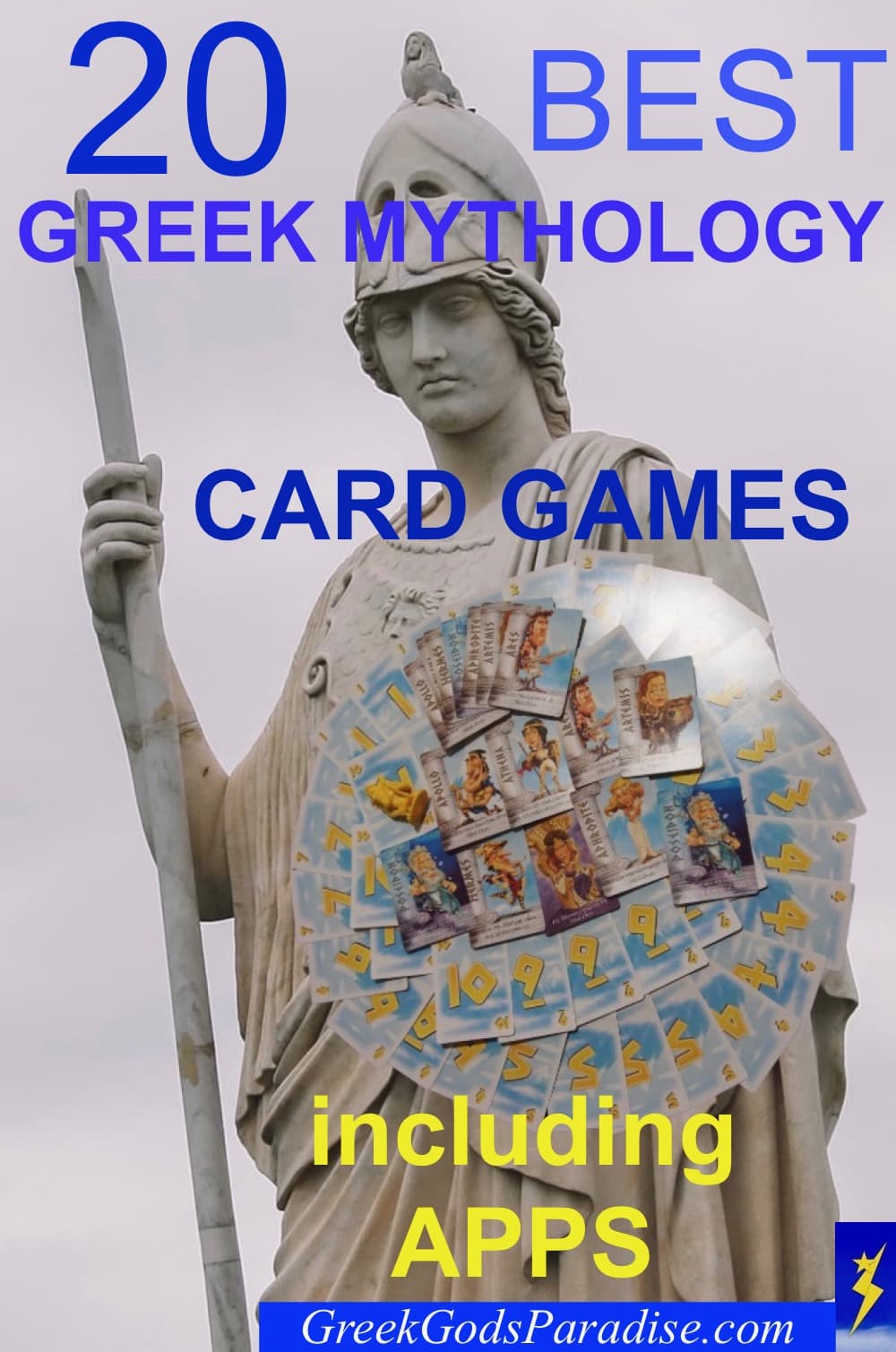Here’s an awesome collection of the best Greek mythology card games, including cards (physical products) and electronic Apps (digital products).
Some Greek mythology card games are even available in both formats, as Greek mythology-related cards and as a digital card game (Greek myth App).
Anyone who enjoys playing video games based on Greek mythology will find another realm of Greek myth games to explore in this list of the best Greek mythology card games.
Some of these Greek myth card games would even be a great gift idea to the right person.
Greek Mythology Card Games (Physical)
First, let’s take a look at some of the physical card games based on Greek mythology.
1. Zeus on the Loose (Greek Mythology Card Games)
Zeus on the Loose is a card game best suited for younger players under the age of 13.
This is because it is a simple game where adding and subtracting (mainly using values of 10 and under) plays a major part in the card game.
Number of card players: 2-5 players

Greek God playing cards include Poseidon (x3), Hermes (x2), Apollo (x2), Artemis (x2), Ares (x2), Athena (x2), Aphrodite (x2), and Hera (x1). So all up, there are 16 Greek God cards.
Other cards in the deck include: Cards numbered from 1 to 10. Each number from 1 to 10 has 4 cards, and they look the same. This means there are 40 cards in the deck that only show numbers.
Thus there are 56 cards in the deck since there are 16 Greek God cards and 40 numbered cards.
The other thing you’ll get with the Zeus on the Loose card game is a tiny yellow plastic Zeus figurine.
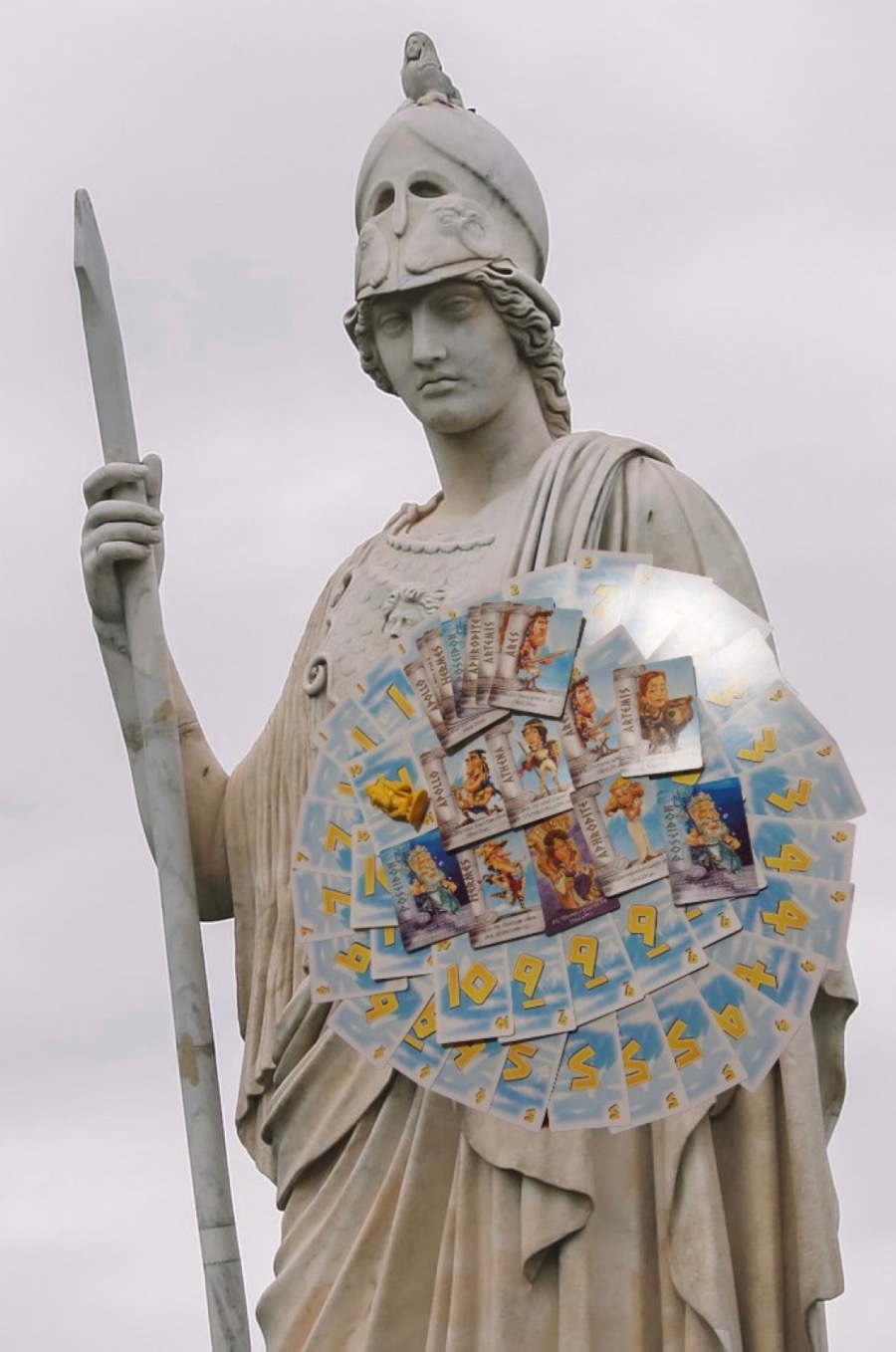
How to play Zeus on the Loose
Each player is dealt 4 cards. All of the remaining cards are then placed in a pile in the center, face down.
The first player throws down one card. This pile of cards grows as players throw down cards, one on top of another. In the card game, it is known as Mount Olympus.
A player may want to start the game with the number 3 card first. Then, if the next player has a seven, they may want to throw that card down since 3+7=10.
This means the player who threw the 7 down gets to take (steal) Zeus.
There are only three ways to steal Zeus: Firstly, when the value in the pile sum is a multiple of 10. For instance, 10, 20, 30, 40, 50, 60, 70, 80, 90, or 100. Secondly, if a player has a card with a number that matches a card just played.
Thirdly, if a player plays a Greek God card stating that they can steal Zeus.
When the game is played, each player has to say out loud the current value of the pile of cards played so far, straight after they’ve played their own card. So everyone playing knows the current value of Mount Olympus.
Most times, this involves adding values from between 1 to 10 to the overall number.
The object of the game is to get to 100 and have possession of Zeus at that point. So that’s how you win the round.
The person to win the card game Zeus on the Loose is the first person to win 4 rounds, which means they’re able to spell out Z-E-U-S, since there are 4 letters in the Greek God’s name.
The important thing to remember in this game is that you need to possess Zeus when the Mount Olympus pile reaches 100 to win the round of a game.
If the total goes over 100, when a card is played, then the person who had Zeus at that particular point wins the game.
Greek God Cards (Greek Mythology Card Games)
Greek God cards make Zeus on the Loose a bit more interesting because they have added powers.
Hera, for instance, can take the card game to 99 straight away. You also get to steal Zeus.
Hermes can reverse the value, so 37 becomes 73.
By playing Athena, you can skip the next player and also steal Zeus. Playing Apollo lets you steal Zeus, but the value remains the same. Ares takes the value to 50 and also lets you steal Zeus.
Aphrodite allows you to round to the nearest multiple of 10 and steal Zeus. Artemis lets you steal Zeus, but the value remains the same. Poseidon lets you steal Zeus and subtract 10 from Mount Olympus.
There are a few more rules, but this is generally how this card game works.
2. Similo: Myths (Greek Mythology Card Games)
Similo is a card-guessing game. There are different sets of cards available for this game, though the best of them happens to be based on Greek mythology.
This card game is also available online.
Number of card players: 2-8 players
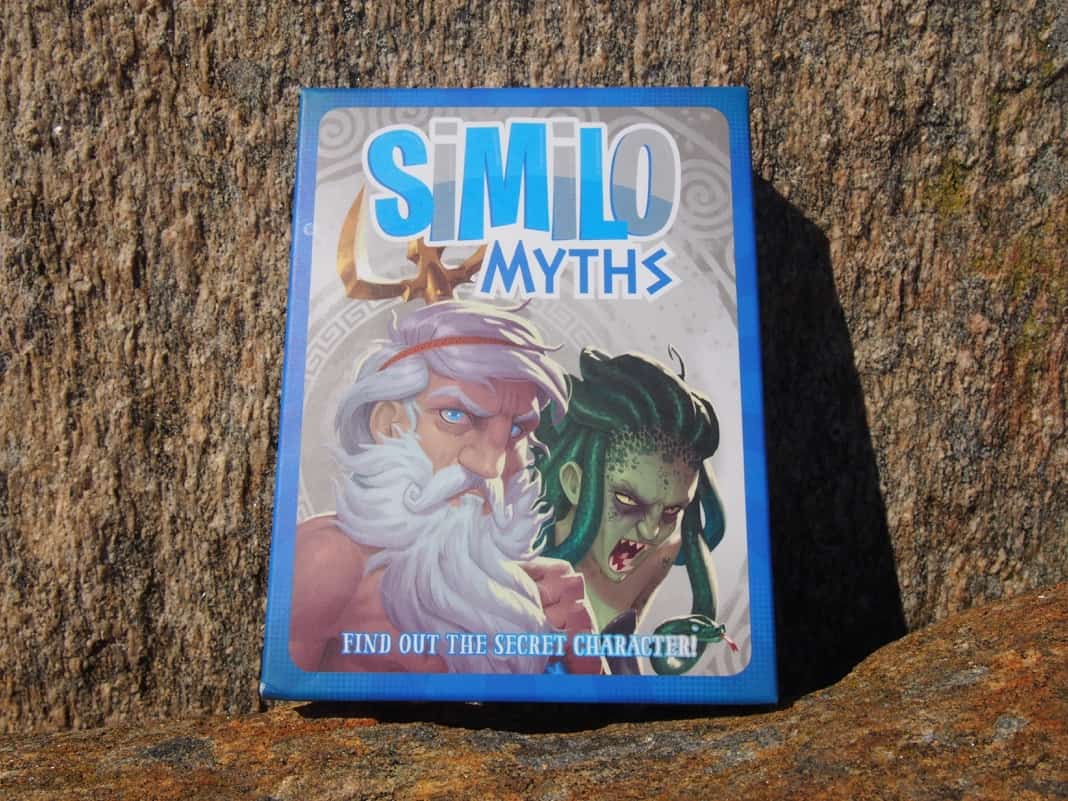
Playing cards include Icarus, Echidna, Arachne, Dionysus, Minotaur, Amazon, Moirai, Poseidon, Heracles, Zeus, Polyphemus, Athena, Circe, Argus, Chiron, Jason, Pandora, Tyche, Achilles, Aphrodite, Hera, Hermes, Medusa, Apollo, Ares, Harpy, Artemis, Eros, Pan, Hades.
All up, in total, there are 30 cards in Similo: Myths.
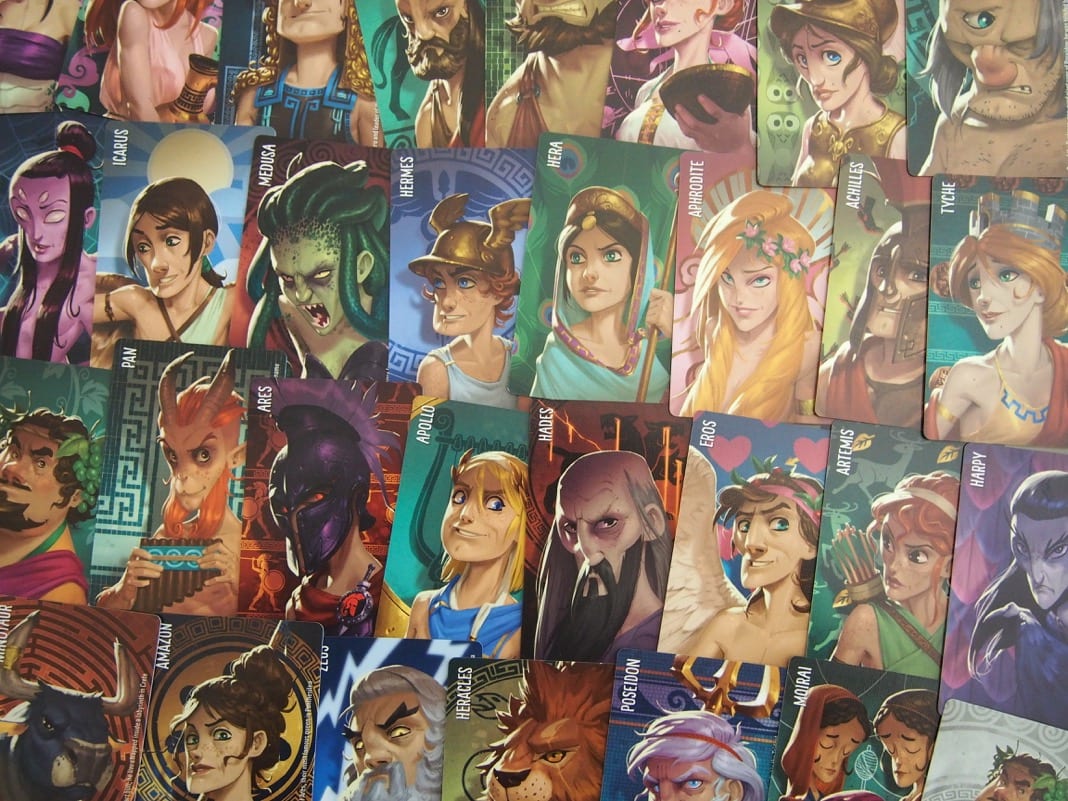
How to play Similo: Myths
Choose one person to become the clue-giver. This person will shuffle the deck of cards and take one card from the top, which becomes the secret card.
The clue-giver has to remember this particular secret card (secret character).
Another 11 cards are taken from the deck after that. Then the 12 cards held by the clue-giver are shuffled together.
Once shuffled, these 12 cards are placed in a 4×3 pattern (face-up) and shown to everyone. So everyone involved in the game can see 3 rows of cards (face-up), with 4 cards (face-up) placed in each row.
The clue-giver then draws another 5 cards from the deck, and these 5 cards are kept hidden from the other players.
The aim of the game is for the clue-giver to allow the guessers (every other player in the game) to determine the secret card (secret character), which has to be one of the 12 cards on display.
That’s done by the clue-giver playing one of the 5 cards as hints (clues).
Note: The clue-giver can’t give verbal or non-verbal hints during the game. They can only give them by playing one of the cards they’re holding.
If they play a card vertically, it means that the secret character is SIMILAR to that card.
If the card is played horizontally, it means the secret character is DIFFERENT to the card played.
Straight after playing one of the clue cards, the clue-giver has to draw another card from the deck so that they’re holding 5 cards again.
Five rounds are played in this card game. The guessers have to eliminate 1 card in the first round, 2 in the second round, 3 in the third round, 4 in the fourth round, and 1 in the 5th and final round.
If the final card left is the secret card (secret character), then all of the players in the game win, including the clue-giver.
If the guessers remove the secret character at any stage, then all of the players lose, including the clue-giver.
Playing Similo with kids could be challenging, especially the Greek myth version. But keep in mind that similarities and differences could include monsters/normal, male/female differences, or even things such as color, which could become useful in the final rounds.
Making guessers select appropriate cards to eliminate will depend on how the clue-giver thinks the guessers think, which is likely to be age-dependent.
3. Top Trumps: Greek Mythology
Top Trumps is another card game with a variety of different decks that comes in different themes.
It’s great to see one based on Greek mythology, and I have to say, it looks terrific.
The one downside I see is that the writing at the bottom of the cards (Fact File) is so tiny that you’ll probably need the eyes of a Hawke to be able to read it.
This game is also available as an App.
Number of card players: Up to 30 players (since there are 30 cards in this deck)
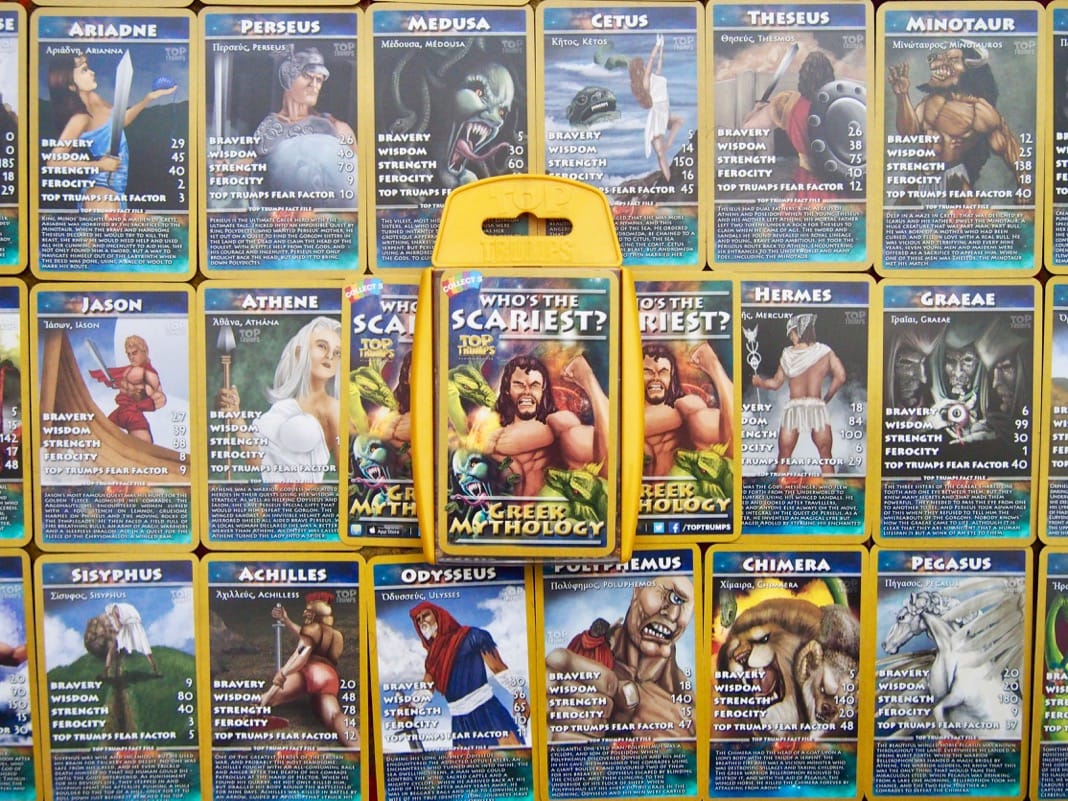
How to play Top Trumps: Greek Mythology
Cards are dealt out evenly to every player, so each player ends up with the same amount of cards.
All players hold their cards as a deck so that only one card is visible at any time to that particular person.
The game starts with one person calling out the highest stat on the card that they think could beat the very same stat held by every other player.
For instance, the person may call out STRENGTH and give the value 142.
If any player has a higher stat, then they will call out a higher number.
The person with the highest value stat will then win the round. The winner then collects the lower valued stat card from every other player.
The person who wins the round then adds these other cards from the other players to the back of their own deck, which is held in their own hand.
The winner of the round then does the same thing. They call out a stat from the card seen in their own card deck in the hope of beating everyone else’s stat.
The card game is won by the person who ends holding all of the cards.
4. Foretold: Rise of a God
In the game of Foretold: Rise of a God, you take on the role of a demi-god. The aim is to construct your temple so that you may emerge as a fully worshipped God. Other game players are trying to do the same thing. Who will win?
Number of players: 2 to 4 players

This doesn’t look like an easy game to play, but if you have all of the time in the world, it may be worth a try.
5. Sellswords Olympus
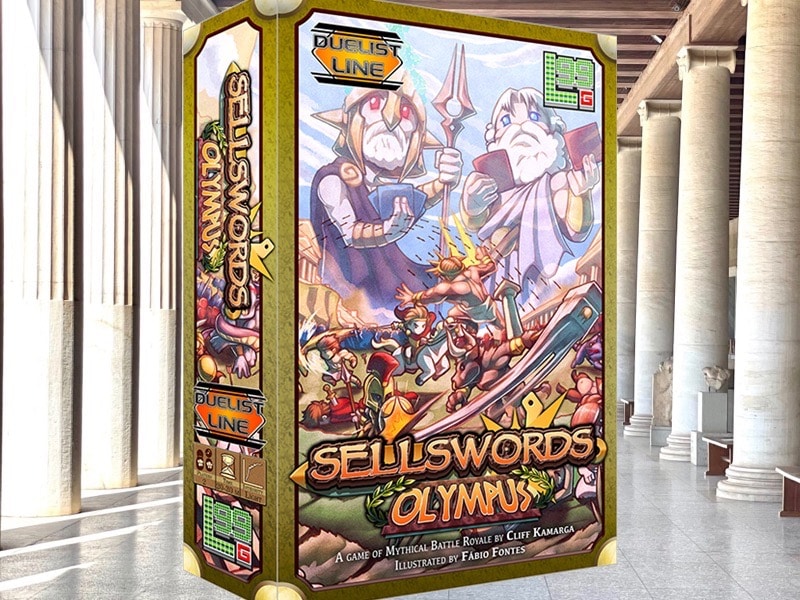
6. Nessos Card Game
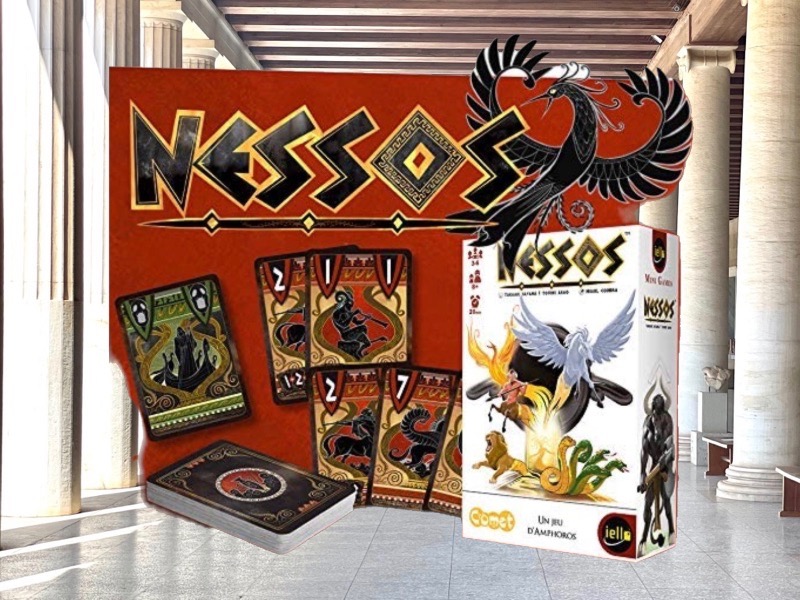
7. Fight for Olympus (2016)
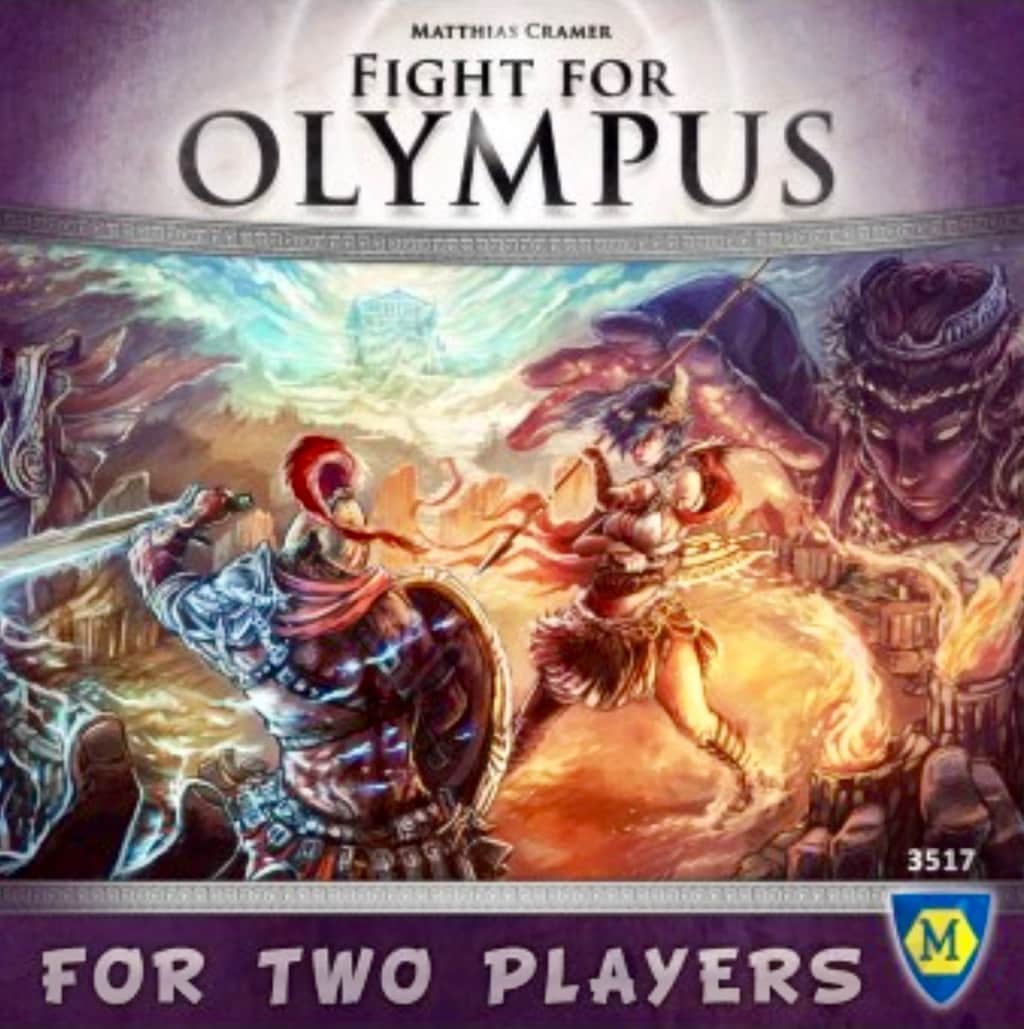
8. Bacchus: When the gods throw a party Card Game
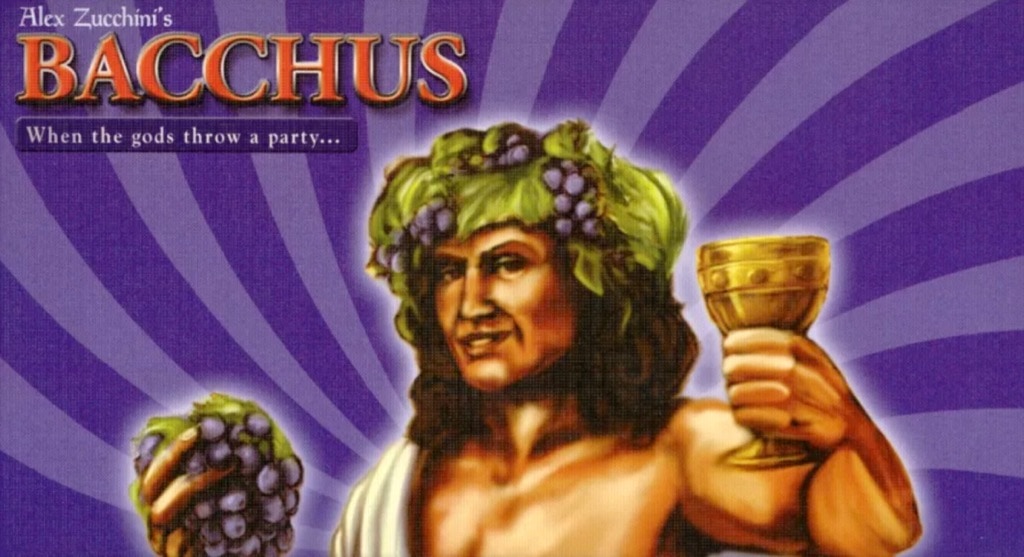
9. Demi Card Game
This is a mythology-based card game that I really wanted to own. However, when I tried to contact the card game maker to ask a couple of questions, my email bounced.
There wasn’t any contact number on their website either, even though the website had been around for quite a long time, since it showed copyright from 2012-2017, including 2020 updates on it.
Not sure what would have happened if I had bought Demi online. It would be great if it did exist, but I don’t believe it. You’d think that they’d have a valid email address. What would happen if nothing arrived in the mail? How are you supposed to contact the seller?
10. Heroes of Thargos: The Cursed Empire Card Game
11. Crazier Eights: Olympus
12. Myth Pantheons
13. Greek Mythology Playing Cards
Many Greek mythology playing cards substitute the Ace, King, Queen, and Jack with characters from Greek mythology.
All you have to do is find your own preferred deck of Greek myth cards.
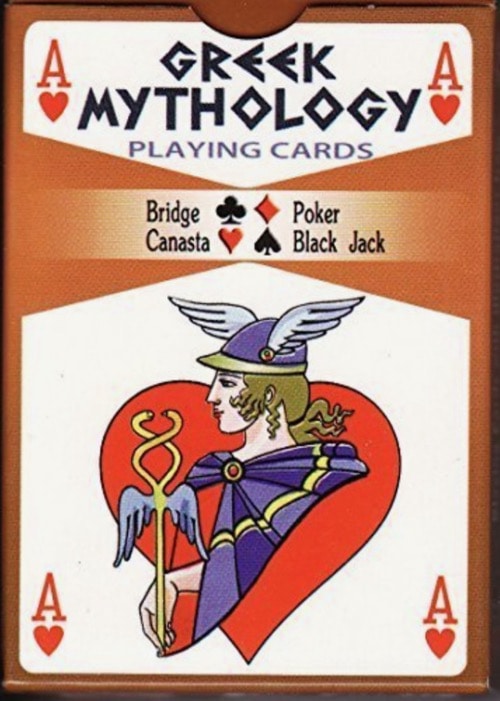
Greek Mythology Card Games (Apps Digital)
The following Greek mythology card games are available using Apps and other online digital platforms.
14. Myths and Legends – Online for Steam (Apps)
This collectible card game is available as a physical product and is also available online.
The problem is that this collectible card game was developed in 2000 in Santiago, Chile.
That means the writing on the cards is not written in English. However, the online version is available in English.
15. Wrath of Olympus (WOO)
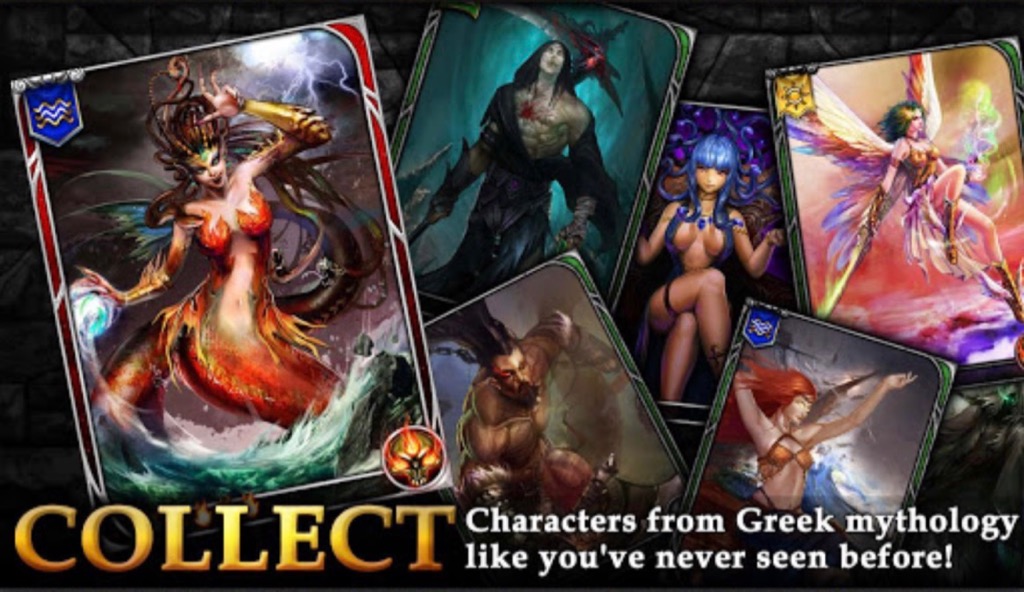
16. Titan: Olympus War
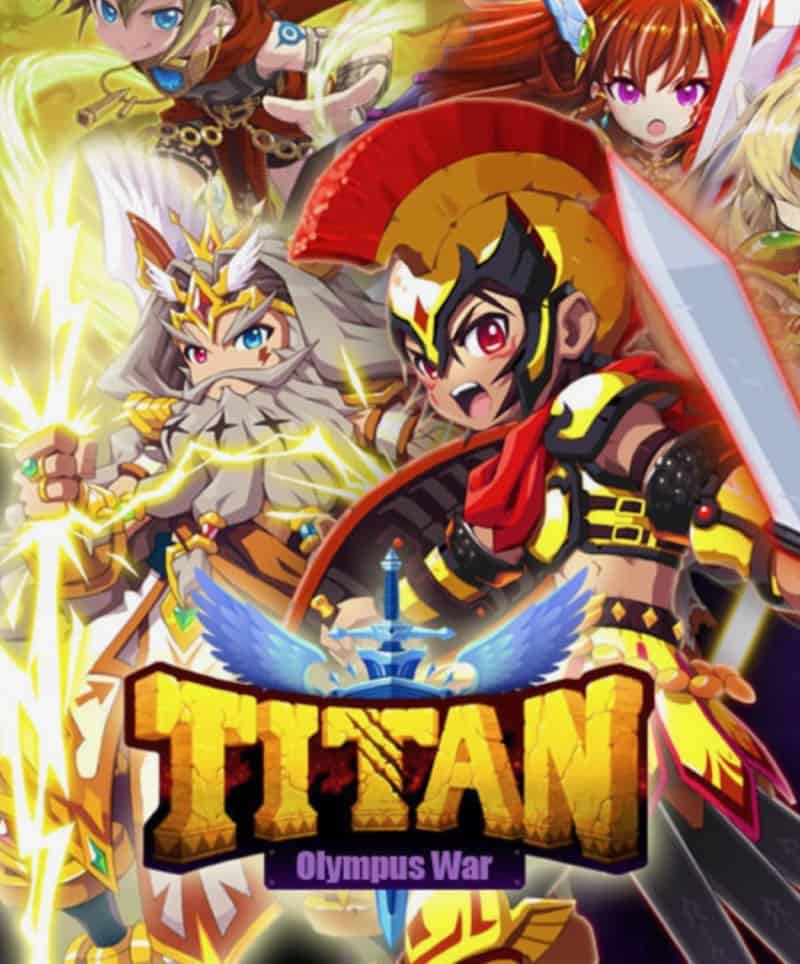
17. Odyssey RPG
18. Trojan War: Clash Cards Game
19. Gods Unchained
20. Mythomagic – Played in Percy Jackson and Sea of Monsters
The last card game in this list of twenty best Greek mythology card games isn’t available in real life.
That’s because it appeared in the movie Percy Jackson: Sea of Monsters (2013).
I think that every Percy Jackson film fan out there hopes to see Mythomagic develop into a real-life game one day.
Greek mythology Card Games – What Else?
This list of 20 best Greek mythology card games could keep you playing card games forever, so choose wisely.
If you want an even better fun time, don’t forget about visiting one of the many theme parks with Greek mythology rides. No card game could beat that.
Pin it … Share it
